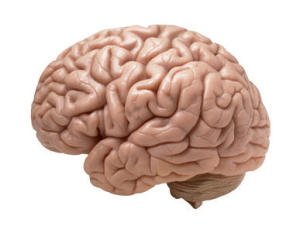
口吃的人大脑听觉和动作整合发生部位与正常人不同(图)
在《国王的演讲》这部电影中,听着贝多芬音乐的同时朗读莎士比亚甚至能治疗好一位国王的口吃。这种在听觉上屏蔽掉自己说话的方法虽然戏剧性,但仍然有着短期治疗效果。它提示了整合听觉和动作功能在说话能否流畅上起着一定的作用。在最新的研究中,科学家们发现那些从小就说话口吃的成人中,它们的大脑中整合听觉和动作功能的部分所在位置和那些说话正常的人不同。
这项研究的论文发表在最新一期的《Cortex》杂志上。
德国哥廷根大学的Nicole Neef和Martin Sommer博士,以及杜塞尔多夫大学的Bettina Pollok博士研究比较了在手指敲打这个动作上,一群说话口吃的成年人和说话正常的人的区别。他们在参与者敲打手指在一个节拍器发出咔嚓声时,使用经颅的电磁刺激来暂时干扰脑背外侧的运动前区皮质。在正常人中,干扰左边的运动前区皮质会影响手指敲打,但干扰右边的运动前区皮质没有什么效果。而在口吃的人中,这种效果则完全相反,手指的敲打只能被右边的运动前区皮质所影响。
在之前的研究中,结果显示在人们说话时,口吃和大脑运动前区部分血液右移相关。在这项最新的研究里,即便在口吃的人没有说话的情况下,听觉和运动的整合也转移到了大脑的右侧。因此,在说话口吃的人中,一个深度的整编可能用于于补偿其它脑区域的微妙脑白质紊乱—左前方次级区域。这项研究将有助于人们对口吃人群中,大脑功能整编程度的更深刻理解。(生物探索 Jun译)
生物探索推荐英文论文原文摘要:
Right-shift for non-speech motor processing in adults who stutter
Introduction
In adults who do not stutter (AWNS), the control of hand movement timing is assumed to be lateralized to the left dorsolateral premotor cortex (PMd). In adults who stutter (AWS), the network of speech motor control is abnormally shifted to the right hemisphere. Motor impairments in AWS are not restricted to speech, but extend to non-speech orofacial and finger movements. We here investigated the lateralization of finger movement timing control in AWS.
Methods
We explored PMd function in 14 right-handed AWS and 15 age matched AWNS. In separate sessions, they received subthreshold repetitive transcranial magnetic stimulation (rTMS) for 20min at 1Hz over the left or right PMd, respectively. Pre- and post-stimulation participants were instructed to synchronize their index finger taps of either hand with an isochronous sequence of clicks presented binaurally via earphones. Synchronization accuracy was measured to quantify the effect of the PMd stimulation.
Results
In AWNS inhibition of left PMd affected synchronization accuracy of the left hand. Conversely, in AWS TMS over the right PMd increased the asynchrony of the left hand.
Conclusions
The present data indicate an altered functional connectivity in AWS in which the right PMd seems to be important for the control of timed non-speech movements. Moreover, the laterality-shift suggests a compensatory role of the right PMd to successfully perform paced finger tapping.







